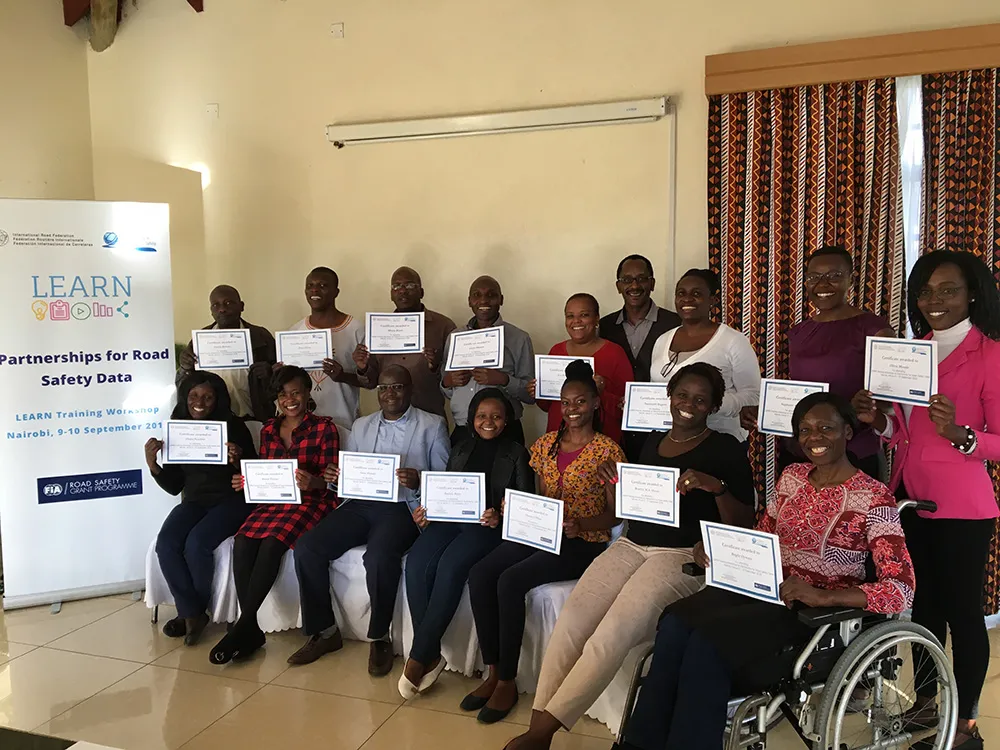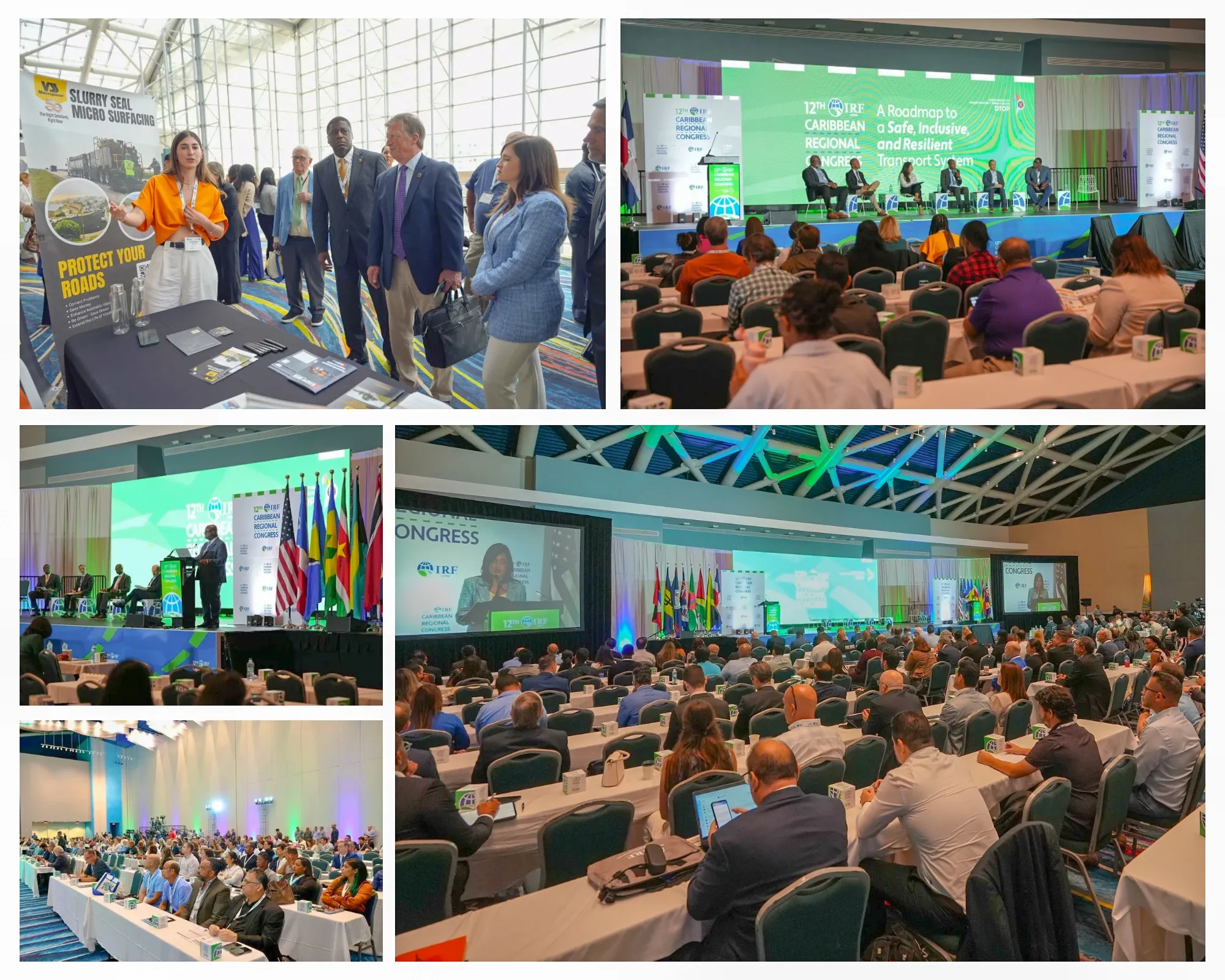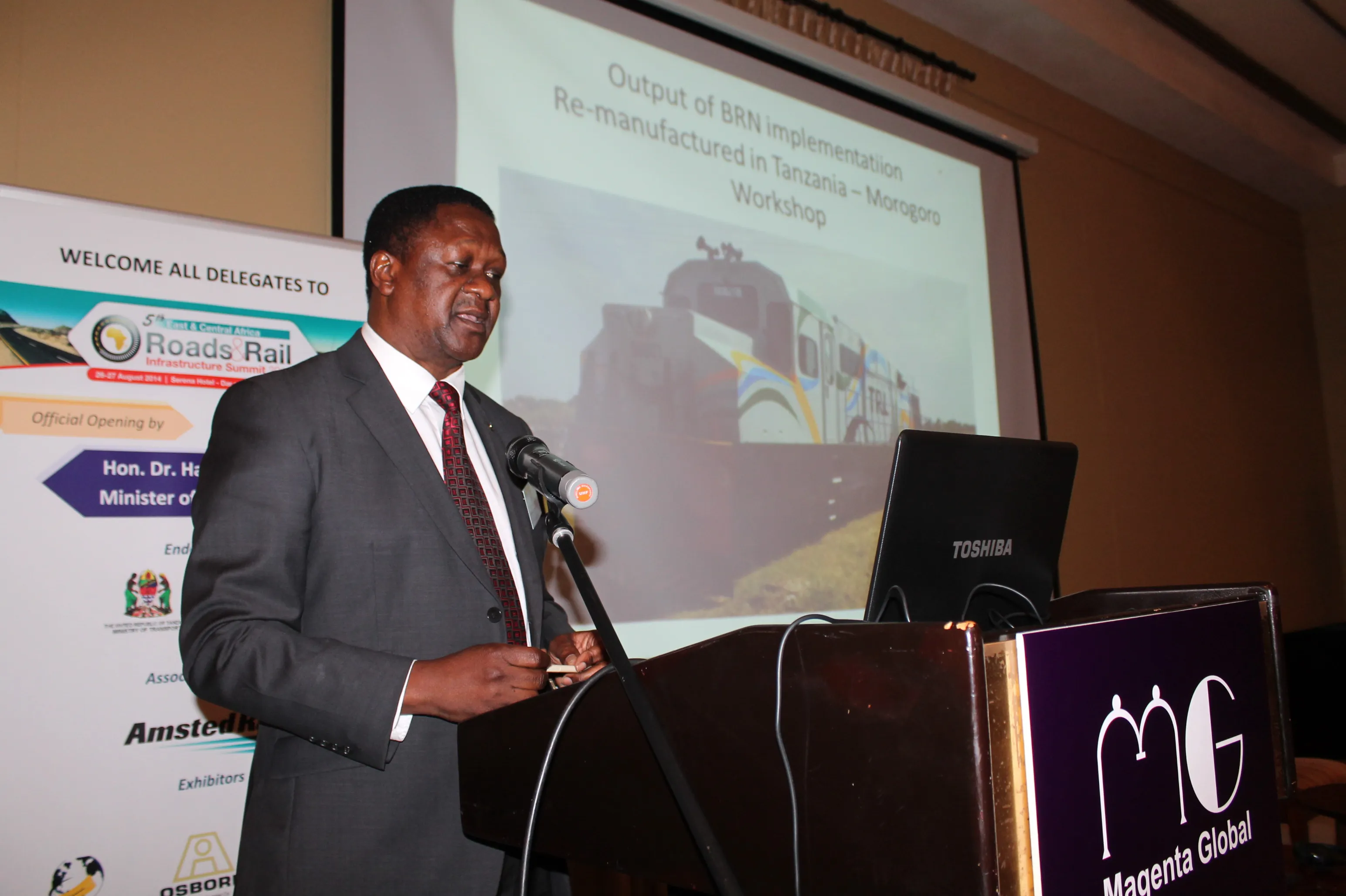
Representatives from national governments, NGOs, the private sector, and academia have been taking part in a two-day training workshop designed to equip and mobilize different partners to join forces to improve road safety data. The data training culminated in a joint concrete action plan to assess risks, improve conditions, and advocate for greater road safety around schools.
The participating organizations were invited because of the roles they play in road safety, strategy, or infrastructure. Stimulating partnerships between these diverse organizations will improve data quality, increase available resources, and promote data sharing. The training is part of the LEARN (Learn, Examine, Review, Act, Replicate, Network) project, a joint initiative from the International Road Federation (IRF Geneva) and the Global Alliance of NGOs for Road Safety (the Alliance) made possible thanks to the support of FIA Road Safety Grant Programme.
The project works toward the aims of the Africa Road Safety Observatory, a continent-wide initiative to share knowledge, statistics, and road safety interventions that work. The approach to partnerships and data that LEARN is promoting in Kenya will be evaluated with a view to utilizing it in other African countries.
Susanna Zammataro, IRF Geneva, said, "Partnerships and data are the heart of the activities of our Federation and so is capacity building. For the past 70 years, we have acted as catalyzers to build and foster partnerships that deliver. With our work on the World Road Statistics, we try to equip decision makers and practitioners with the tools they need to make informed decisions and to tailor evidence-based solutions. We are delighted to work in Kenya with this varied group of stakeholders. Together, we are stronger and more effective."
Lotte Brondum, the Global Alliance of NGOs for Road Safety, said, "Momentum is growing in Africa for a coordinated response to the 272,000 deaths that occur on the continent's roads every year. Civil society is an essential partner in this challenge. It is the eyes, ears, and voice of communities. Governments across Africa need to recognize the role that NGOs, the private sector, and academia play in supporting implementation of national road safety strategies. We are excited that the Government of Kenya has taken the initiative to include stakeholders from different sectors in their plans and look forward to evaluating the what is achieved by these partnerships."









